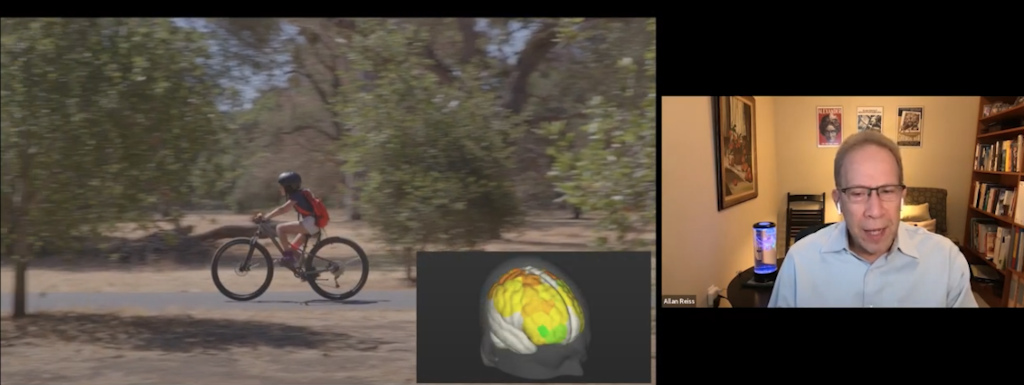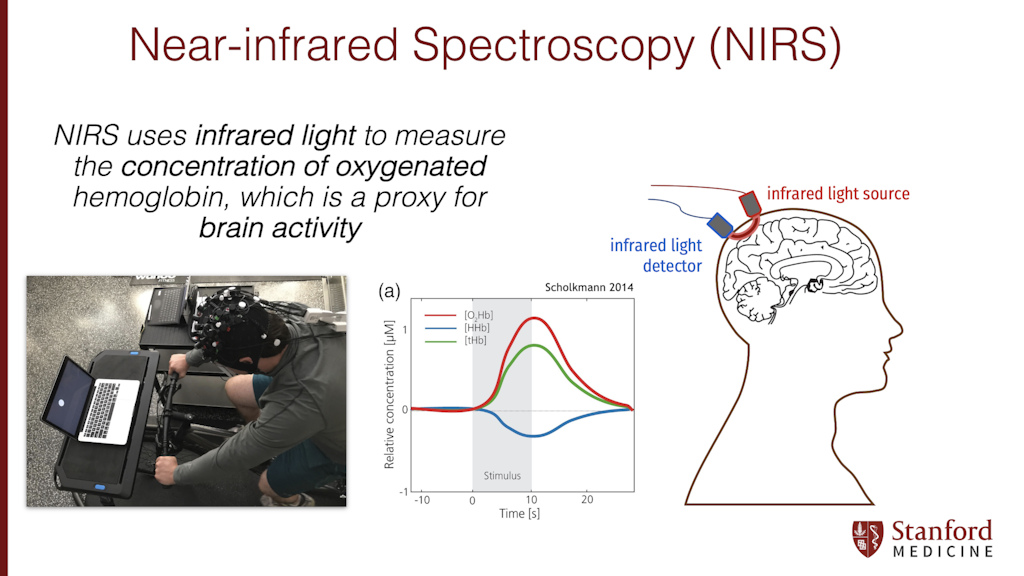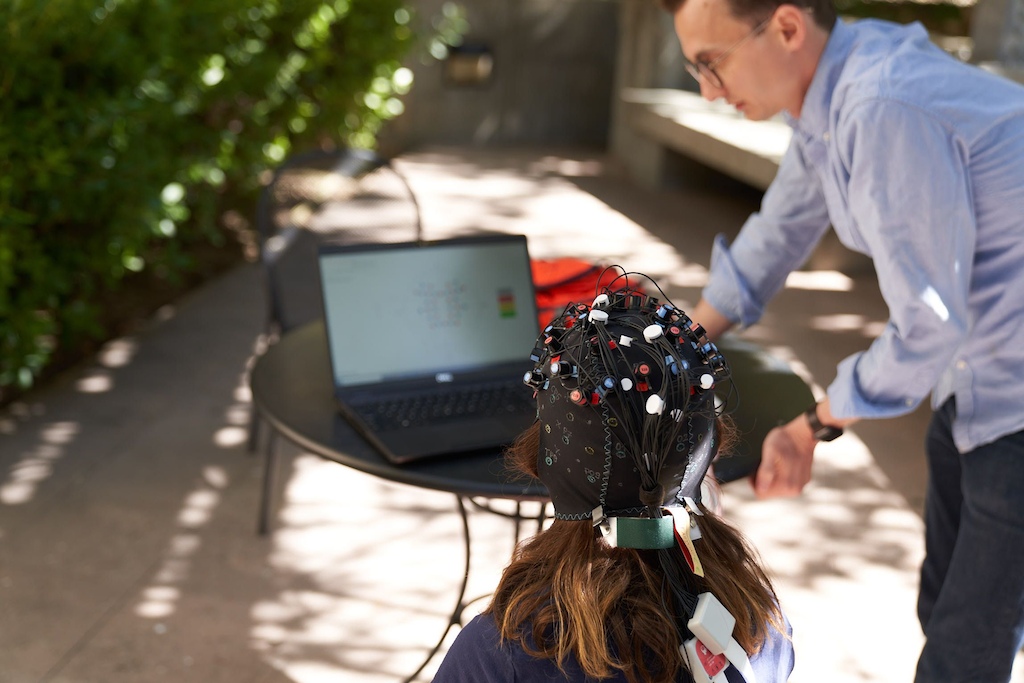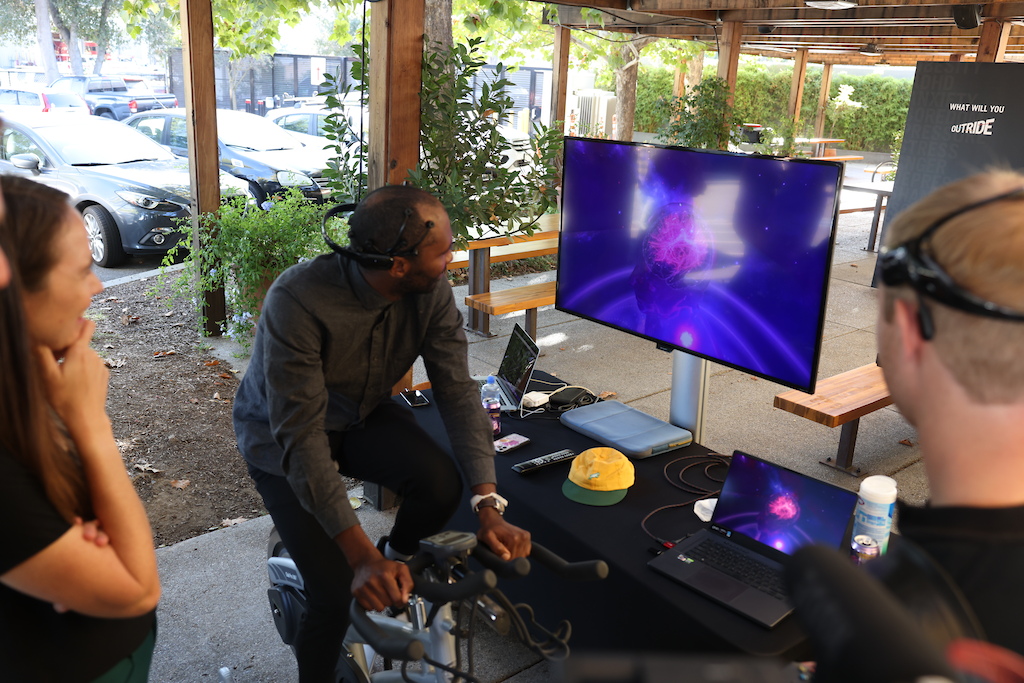Outride Shares 2022 Summit Recap of Cycling's Impacts on Brain Activity
Press Release: Outride
This year marks 10 years since Outride (formerly The Specialized Foundation) launched a school pilot program to examine how bicycling impacts our brain activity, and how that ultimately impacts attention, focus, and school performance. Since then – Outride and its partners have made incredible strides, with over 50,000 students going through Outride’s school and community programs each year. The results of this work were shared at the 2022 Outride Summit, which brought together an array of leaders and incredible talent from across industries and highlighted what Outride has believed all along: that cycling lights up the brain, and the benefits are far-reaching; cycling can assist in empowering youth and communities to push through the mental health crisis we are currently facing.
Our summit kicked off with a brief history of Outride, followed by a statement by Mike Sinyard, founder of Specialized Bicycle Components and co-founder of Outride. Mike shared what inspired him to launch this initiative in 2012, and how continued advancements in research and technology demonstrate the incredible benefits of cycling on our physical and mental health, motivating him to continue to support Outride to help get more youth riding across the country. The key message: “It’s not about Specialized.” It’s about sharing the power of bikes to light up the brain – no matter what bike they’re riding.

Allan Reiss, M.D. of Stanford University, presents ground-breaking research focused on assessing brain activity WHILE riding outside in nature.
Allan Reiss, M.D. of Stanford University shared research findings that use mobile brain imaging to capture what’s happening in our brains while we ride. Dr. Reiss summarized the existing research on why bicycling and physical activity have benefits for the brain, stating that exercises like bicycling utilize a combination of “spatial orientation, navigation, body awareness, memory, motor control, balance and coordination, and executive function, which are important for improving and sustaining brain health.” Ultimately, bicycling and physical activity help to “increase your ability to make new [brain] cells, and increase the ability to make connections between those cells,” said Dr. Reiss.
Middle school Physical Education teacher Ryan McKinney, M.Ed., presented research carried out at his school that found “the kids that went outside to ride bikes before their math and reading classes learned more, behaved better, and paid more attention.” Research carried out by Fletcher Dementyev and Dr. Sean Wilson of Loma Linda University found that students who participated in the Riding for Focus school bicycling program experienced a general increase in psychosocial well-being, with the results being particularly impactful for female students.
Tasha Tinagero, Outride’s Marketing and Partnerships manager, closed out the session with a panel of Outride Ambassadors, featuring Olympians Haley Batten and Christopher Blevins, 11-time World Champion Dr. Meg Fisher, National Champion Josie Fouts, and industry-leading media expert and podcast host Christopher Stricklen. “The amount of connection that the bike brought me to communities… to other people, and then to myself became foundational for me at an early age and I think it’s the greatest gift I’ve had in my life,” said Blevins. The panelists shared their journeys with the bike, and why they have chosen Outride to partner with to inspire, engage, and increase access to cycling for the next generation.
The Summit consisted of over 25 presentations and workshops. We believe these are the key themes that emerged throughout the summit:
1. Cycling and physical activity have incredible benefits not just for the body, but also for the brain. Even a short ride has brain-boosting benefits.
2. School cycling programs can be beneficial not only for student well-being, but also academic success, and for increasing motivation to continue to be active outside of school.
3. Youth-focused community-based cycling organizations are an important part of creating a larger community cycling ecosystem. Programming by such organizations can help foster a sense of belonging, build self-esteem, and help youth become stronger advocates for their community.
4. When creating programs and initiatives for young people, it’s important to provide them with a voice and a seat at the decision-making table. The bike industry can actively create opportunities for them to become more involved and more connected.
5. Creating larger pathways of engagement for young people to continue riding from childhood into adulthood is key for supporting long-term participation. This will require strong collaborations and partnerships between organizations, as it is a much larger undertaking than any of us could take on alone!
6. Women role models and coaches are imperative to the success of young girls feeling seen and represented. When focusing on increasing participation by young women and girls, particularly from low-income and marginalized communities, it is critical to be an active listener, taking their lead and being responsive to their needs.
7. Many schools and communities do not have easy access to safe places to ride. Organizations such as Transportation Alternatives and Safe Routes Partnership are helping to create safer streets for young people, and have developed insightful toolkits to help you get started in your community.
8. Building trust and showing up need to be at the core of this work. Focus on more than just giving out bikes. Work with communities to identify what’s needed to support ridership: safe places to ride, quality programming, staff support, mentorship, or even general community aid, as the barriers to participation are not always what you think they are.
Author Info:
Must Read This Week
Sign Up for the Pinkbike Newsletter - All the Biggest, Most Interesting Stories in your Inbox
PB Newsletter Signup






I am not an xc guy by any means though, and my regular riding offers great benefit too, the mental clarity and the increase in focus for roughly 3 hours are great (which I think is more what this study from Outride was focusing on)
This is old news with new tests, but surely will benefit groups of riders focusing on new protected bike lanes instead of just one more car lane.
In this case, I don’t have much of a problem with it. As I said, it’s pretty obvious we as a society (in the US, anyway), could reap many benefits from being more cycling-friendly. I just think the whole pay-to-play process of these studies is kind of funny. The Ford Motor Company is probably doing a counter study right now touting the health benefits of an extra lane for Ford Automobiles.
Well, and what the bike community needs are affordable, simple bikes that work!
Reliable, simple and affordable is exactly what is needed. Unfortunately, there are very few options that fit the criteria.
Riding at my limit makes me happy, racing makes me happy, and it's near-impossible to avoid concussions riding how I like so I try to keep it light-hearted on this stuff. I've had a few, but there's no un-concussing ourselves just relax.
I'm not making light of your injury history. I know this shit is life-changing, from first and second hand experience. I've had concussions from biking, I replace helmets constantly. I'm currently recovering from a TBI that wiped out weeks of memory, affects my balance and mood most of a year later, and had me unable to recognize my mother for a week in hospital. And that one happened falling down the stairs in my apartment. Shit happens dude. My best friend got hit by a car, skull fracture and tons of bleeding. He had the right of way and probably would have got hit if he was on foot as well. We counting that one as caused by cycling?
This article and research is just because Specialized paid for it, they want more people on bikes. The numbers will never be accurate because if this, blah blah blah.
Do I want people to say anything? Not particularly. Just want to put out that cycling increases chance of TBI, and the more you ride, the lure likely, especially when other vehicles are involved.
To you and the other commenters. You’re all (myself included) only speaking from your own narrow view of the world, your assumptions mean absolutely nothing,
There's nothing more Trumpian than these ad hominem attacks, chill out man.
In case it needed saying, I'm not a fan of the former president. However irrelevant that is.